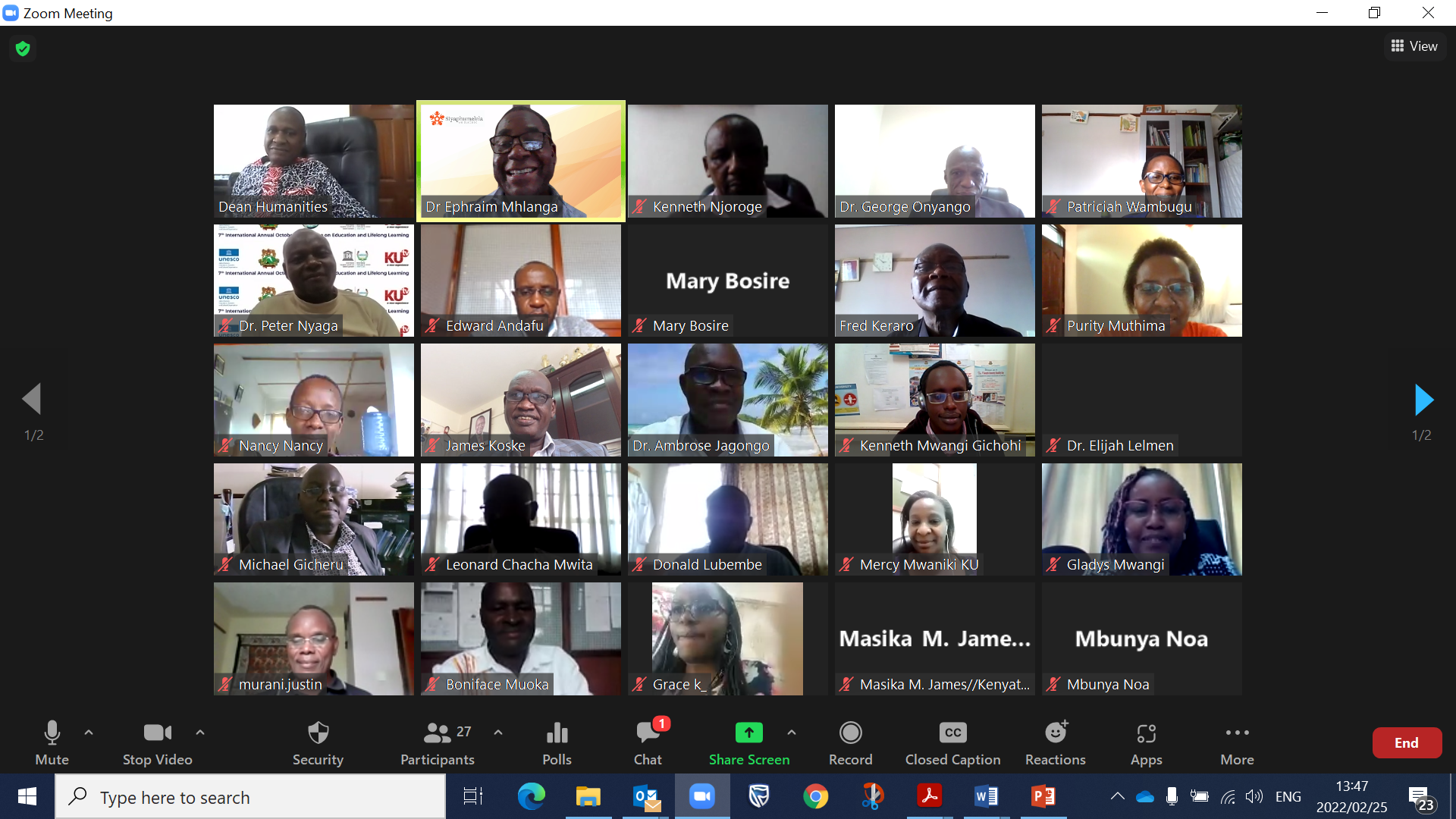

Ephraim Mhlanga
Graduate unemployment is increasingly becoming a worrying trend the world over. This problem is particularly acute in Africa where many economies are failing to create more jobs. In some African countries, economies have actually shrunk resulting in massive retrenchments of workers. In addition to shrinking, most economies have also undergone fundamental changes as a result of factors such as technological development and constraining government policies, (Kenton, 2020)[1]. Such changes have resulted in what economists generally refer to as structural unemployment, unemployment that is caused by a mismatch between the skills that workers in the economy can offer, versus the skills actually required by industry and employers. In many African countries, even university graduates find it difficult to get jobs, with some settling for anything that comes their way, even if it is not related to what they studied. Yet, year after year, universities continue to churn out graduates who seek employment in this shrinking global job market. The gap between demand and supply of employment is getting wider and wider and has become a serious cause for concern for governments, communities and individual graduates.
Additionally, it is argued that university graduates are not only unemployed, but also unemployable, (Hall &Thomas, 2006)[2]. This problem is one that many universities are having to grapple with more and more. It begs the question, are institutions of higher learning teaching relevant content and are they teaching in the right way?
It is against this background that COL is supporting the development of employability strategies in selected African universities in member countries. In September 2021, COL supported the development of an employability policy framework at the National Open University of Nigeria (NOUN). This has now been followed by a similar initiative that involved eight other universities in seven sub-Saharan African countries. Like the first initiative at NOUN, Saide facilitated the development of the employability frameworks at the eight institutions. This initiative was implemented from January to April 2022.
The project started with workshops that sensitised the participants to the concept of employability and a number of related issues. The universities were paired up for the virtual workshops. Each of the four two-day workshops focused on a range of issues relating to employability and included defining what is meant by employability, how universities can support and promote it, and how to measure success in this field. It was important in these workshops to clarify that employability is not about universities creating employment for graduates, rather it is about imparting the relevant knowledge, skills, and competencies that are required in the employment market. Differently put, employability is about the potential for an individual to secure gainful employment or to create employment for themselves. 
Screenshot of workshop participants from Kenyatta and Egerton Universities, 25 February 2022
At the workshops, participants shared information about the state of graduate unemployment in their respective countries, as well as sharing information regarding interventions being implemented at their institutions to alleviate graduate unemployment. However, most of these interventions were implemented in the absence of any institutional policy guidelines and were rather ad hoc and not implemented at a systemic level. Examples shared included, creating opportunities for student internships in selected programmes, setting up offices that provide information on job opportunities and occasionally inviting people from industry to give talks to students on campus. However, participation in most instances was left at the discretion of individual students, and hence resulted in the limited impact of the interventions.
Working in institutional groups, the participants were provided with exemplar employability policies from other institutions to assist them in brainstorming the content and structure of employability policies for their institutions. Having the exemplars enriched discussions on what should be included in the policies and also helped the participants to identify the parties that should contribute in the policy process at each of their universities.
Using a draft policy framework, the various task teams engaged in an iterative process, working with the Saide consultant to develop and prepare a final draft of their institutional policy. A key quality issue included the review of the proposed employability polices to ensure alignment with institutional mission statements, teaching and learning policies, assessment policies, and with quality assurance policies. This process also served to highlight the existence of a number of institutional policies, that some academics were not aware of.
The policies have yet to be submitted to their respective university management structures for approval.
Workshop screenshot showing the Saide facilitator and participants from UNESWA and Buea Universities, 1 March 2022.
Several lessons were learnt during the process of this project. Contrary to what many academics believe, it is possible to integrate aspects of employability into any discipline or area of study at university level. The challenge lies in skilling lecturers to design course module content that includes discipline specific knowledge and competencies that have real life application. It is also important to design authentic assessment, i.e. to provide students with assessment tasks that give them the opportunity to apply what they have learnt by being required to solve real-life problems. It is therefore important that assessment should focus more on facilitating learning than on merely establishing what the student has learnt – assessment for rather than just assessment of learning.
In conclusion, this project, has enabled the eight institutions to develop relevant employability policies, now the next step will be to implement these policies and to translate them into practice. However, it is worth noting, that the National Open University of Nigeria, having gone through a similar process of developing an employability policy with support from Saide in 2021, has since officially approved the policy and is already in the process of implementing it.
[1]Kenton, W. (2020) Structural Unemployment. https://www.investopedia.com/terms/s/structuralunemployment.asp
[2]Hall, D. & Thomas, H. (2005) Links between Higher Education and Employers in Malawi: The need for a dialogue? Journal of Higher Education Policy and Management, Vol 27 (1), pp. 67-79.